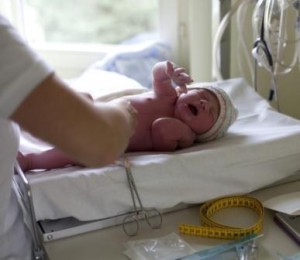Dr Newman, from the Flinders-based Southgate Institute for Health, Society and Equity, says the closure of rural birth centres and the increasing number of interventions are "retrospective steps" in the provision of birthing care and services.
Her comments follow a review of maternity services in Australia during the past seven years for a revised edition of Better Birth: The Definitive Guide to Childbirth Choices, which was co-authored by Dr Newman and University of Adelaide Adjunct Associate Professor in Midwifery Dr Heather Hancock.
First published in 2006, a second edition of the book has been released this month.
"We wanted to give readers up-to-date information based on new research which has come out since the original edition but to our dismay we weren’t able to report many major improvements to maternity care in the intervening seven years," Dr Newman said.
"In some ways things have moved backwards since the first edition.
"Many rural birth centres have closed for bureaucratic centralisation reasons, not because women weren’t using them, and although we had a National Review of Maternity Services, which raised hopes of significant change for better care and experiences, the review didn’t really deliver on these."
In updating the national statistics on intervention rates, Dr Newman said it was "saddening" to find most intervention rates were continuing to creep up while normal birth rates continued to fall.
"Research shows that a lot of interventions, including caesarean, are performed when they’re not really needed yet the physical and psychological impacts on both mother and baby can be significant," Dr Newman said.
"Other statistics such as the caesarean rates for first-time mums in private hospitals are not in public view, and we have to question why these rates are being kept secret."
She said the introduction of midwifery group practices – where women are cared for by the same midwife from pregnancy to birth and back home – was a more cost effective and personalised model of care according to research, yet: "we need to expand the number of places because women want this type of care – demonstrated by the huge waiting lists for it".
Despite the lack of improvements in some areas of maternity care, Dr Newman said it was pleasing to see a much-needed focus on postnatal depression.
"We’ve noticed a very positive change in the increasing amount of research on the mental health impacts of birth, especially interventionist birth, and there has been a welcome focus of increased support for postnatal depression for mums as well as dads," she said.
Dr Newman said she would now like to see a greater focus on reducing interventions, more personalised care and improvements to primary health options and maternity care in the community: "so that the start to life with any new baby will be the best it can be".
"Childbirth is an extremely emotional and physical event in a woman’s life, therefore the impacts are quite significant and long lasting so we really need to ensure women are involved and informed," she said.



